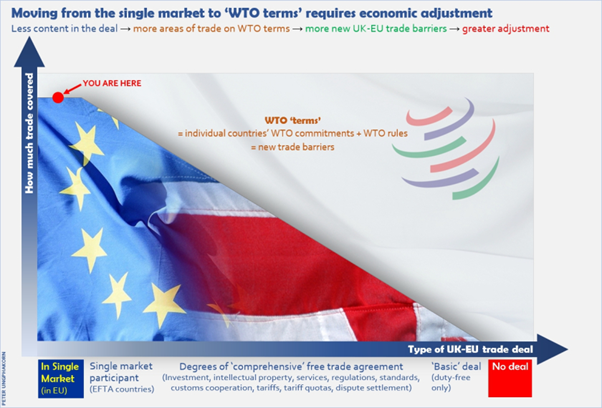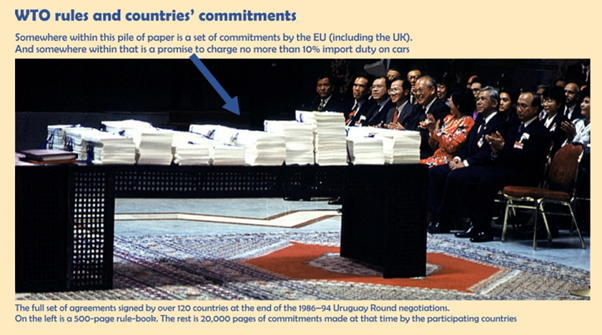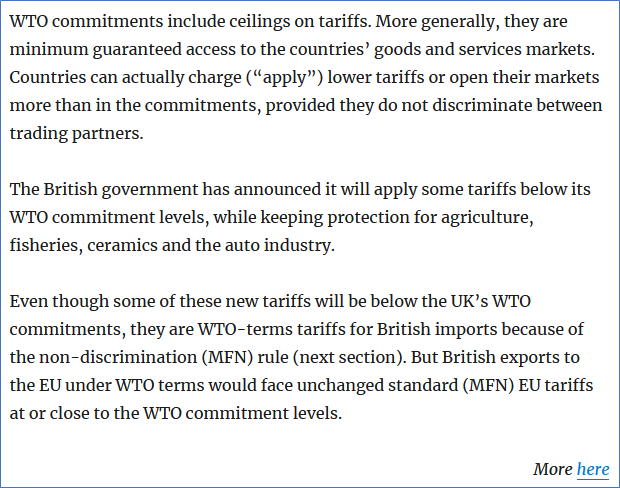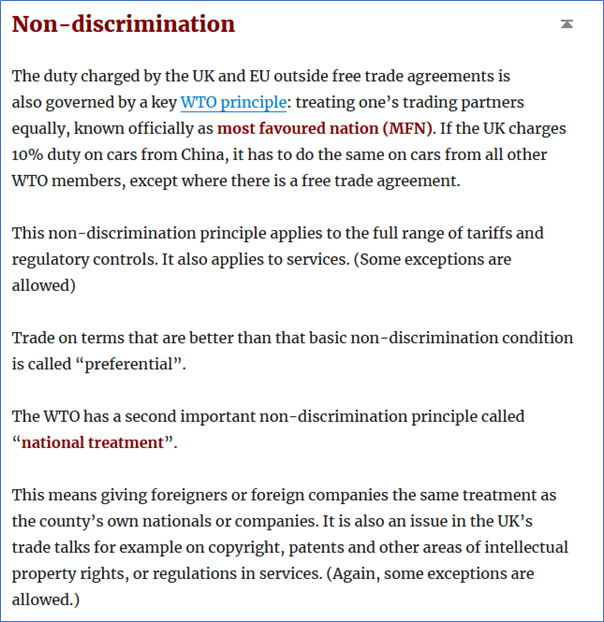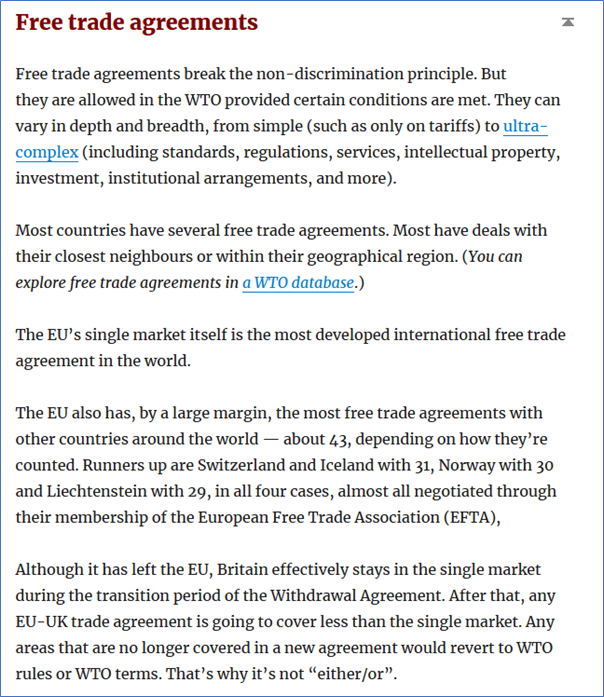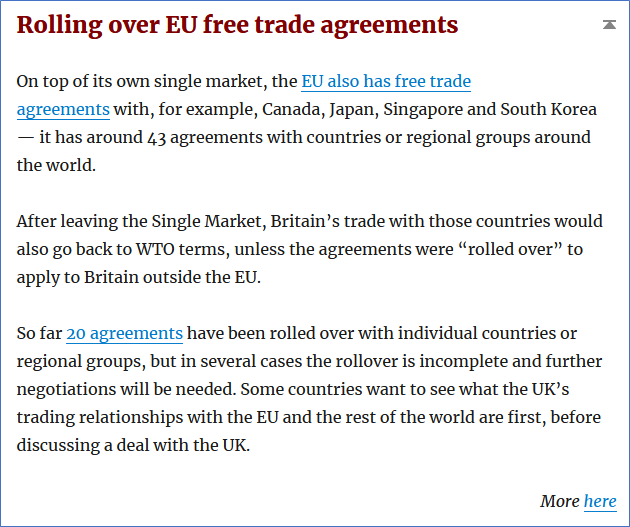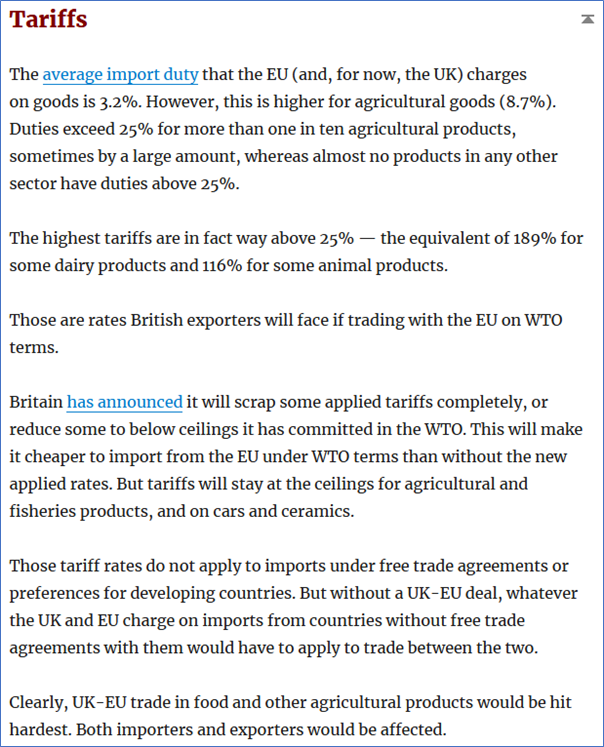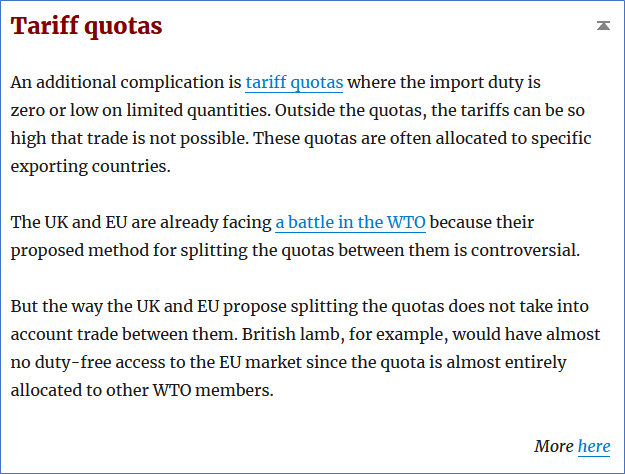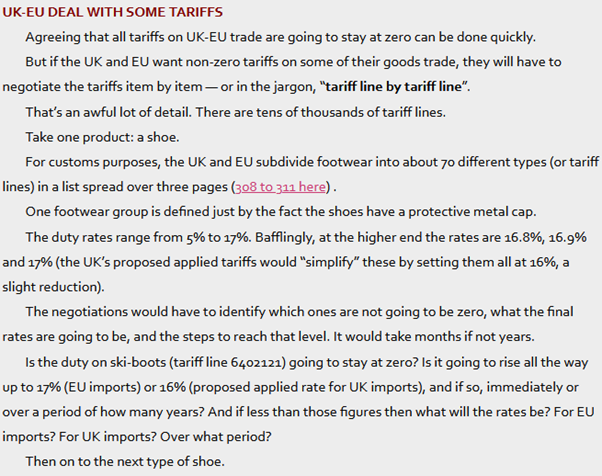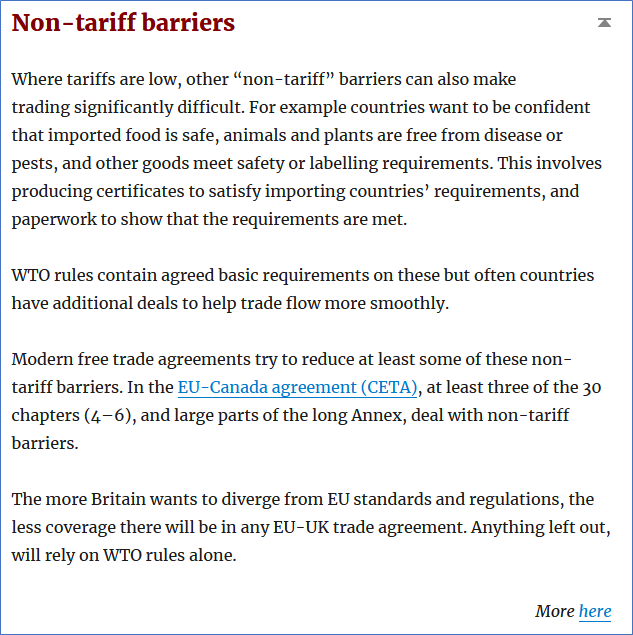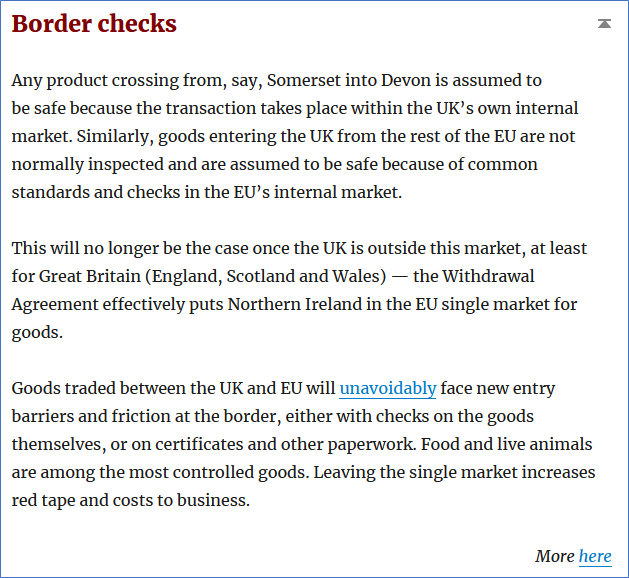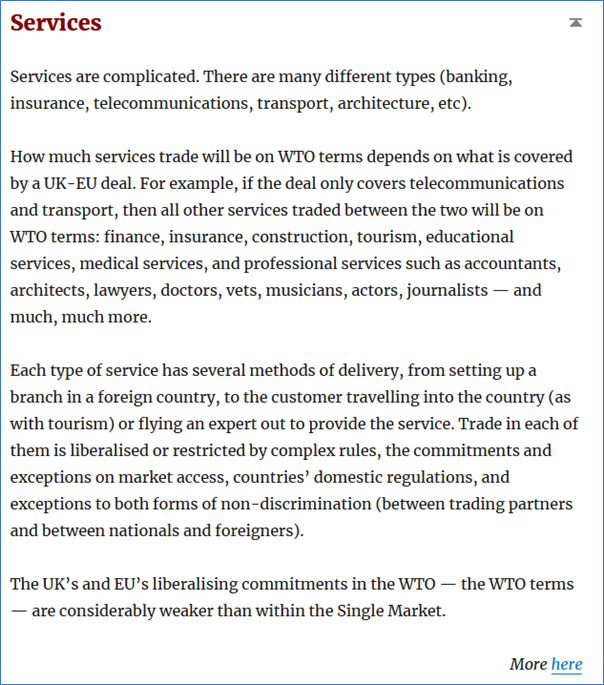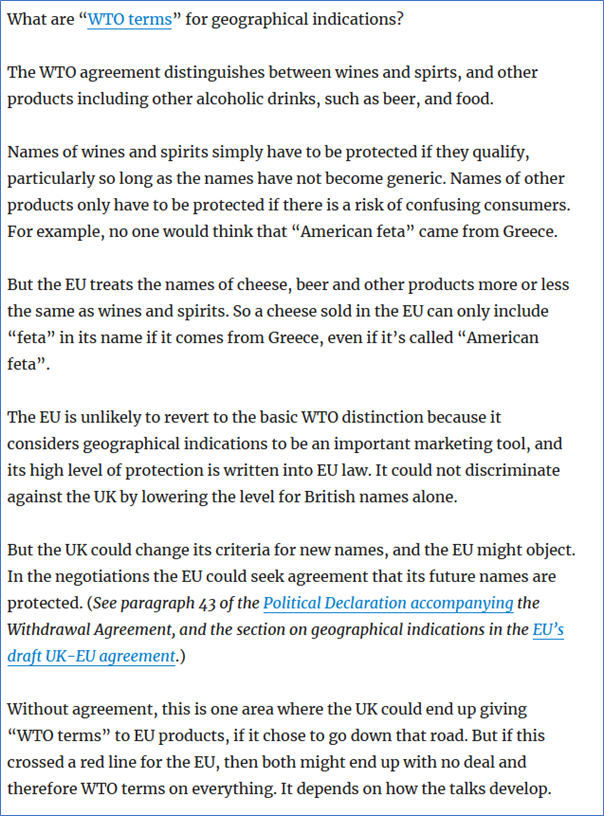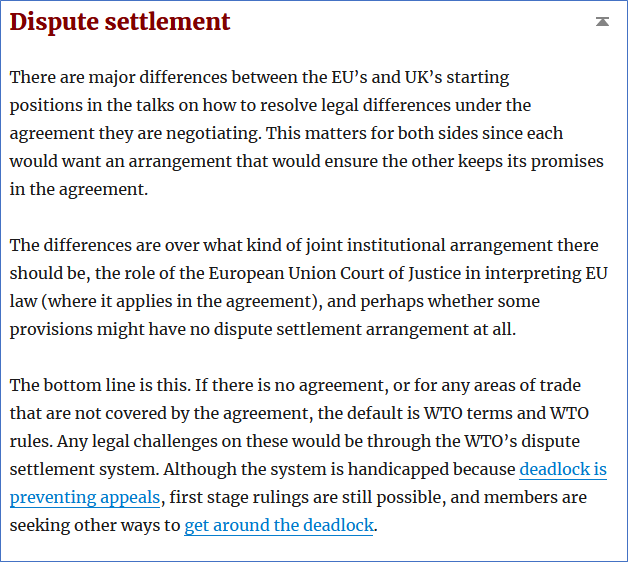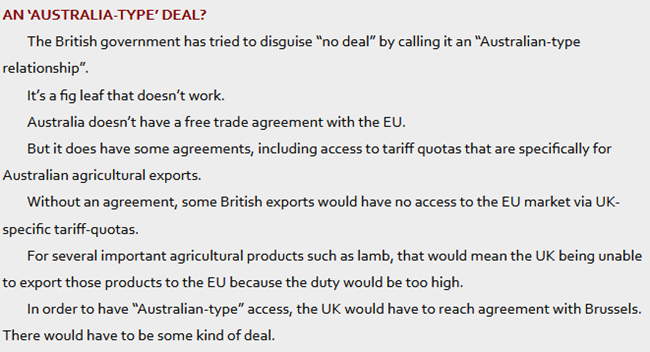1/20—Another look at what UK-EU trade “on WTO terms” means.
● It’s not just about “no deal”
● The more the UK & EU trade on WTO terms, the more trade barriers they raise against each other
● To minimise the hit, the talks will need more time https://tradebetablog.wordpress.com/2020/05/27/summary-wto-terms-brexit/">https://tradebetablog.wordpress.com/2020/05/2...
● It’s not just about “no deal”
● The more the UK & EU trade on WTO terms, the more trade barriers they raise against each other
● To minimise the hit, the talks will need more time https://tradebetablog.wordpress.com/2020/05/27/summary-wto-terms-brexit/">https://tradebetablog.wordpress.com/2020/05/2...
2/20—The summary and the three longer pieces draw partly on a new @UKandEU paper, also revisiting UK-EU trade on WTO terms. My emphasis is different.
https://ukandeu.ac.uk/research-papers/revisited-what-would-trading-on-wto-terms-mean/">https://ukandeu.ac.uk/research-... https://twitter.com/UKandEU/status/1265508125496479744?s=20">https://twitter.com/UKandEU/s...
https://ukandeu.ac.uk/research-papers/revisited-what-would-trading-on-wto-terms-mean/">https://ukandeu.ac.uk/research-... https://twitter.com/UKandEU/status/1265508125496479744?s=20">https://twitter.com/UKandEU/s...
3/20—Here’s @anandMenon1’s thread on the new @UKandEU paper https://twitter.com/anandMenon1/status/1265590542429192198?s=20">https://twitter.com/anandMeno...
4/20—And here& #39;s a recording of the @UKandEU discussion on “Brexit: the state of the negotiations”
With @BBCkatyaadler @iainmartin1 @CSBarnard24 @anandMenon1, and @jillongovt presiding https://youtu.be/-aLuREuxcpc ">https://youtu.be/-aLuREuxc...
With @BBCkatyaadler @iainmartin1 @CSBarnard24 @anandMenon1, and @jillongovt presiding https://youtu.be/-aLuREuxcpc ">https://youtu.be/-aLuREuxc...
5/20—My take.
To be clear.
“WTO terms” is not just about “no deal”, but a sliding scale.
Less coverage in the UK-EU deal? More trade on WTO terms.
More trade on WTO terms means more trade barriers—many more potentially than appears at first glance.
https://tradebetablog.wordpress.com/2020/05/27/summary-wto-terms-brexit/">https://tradebetablog.wordpress.com/2020/05/2...
To be clear.
“WTO terms” is not just about “no deal”, but a sliding scale.
Less coverage in the UK-EU deal? More trade on WTO terms.
More trade on WTO terms means more trade barriers—many more potentially than appears at first glance.
https://tradebetablog.wordpress.com/2020/05/27/summary-wto-terms-brexit/">https://tradebetablog.wordpress.com/2020/05/2...
6/20—WTO rules and WTO terms.
The WTO has a rule-book, actually agreements among the membership.
Members also make individual commitments on opening their markets, etc.
WTO terms is an unofficial description of the combination of the two.
#rules">https://tradebetablog.wordpress.com/2020/05/27/wto-terms-part-1-meaning/ #rules">https://tradebetablog.wordpress.com/2020/05/2...
The WTO has a rule-book, actually agreements among the membership.
Members also make individual commitments on opening their markets, etc.
WTO terms is an unofficial description of the combination of the two.
#rules">https://tradebetablog.wordpress.com/2020/05/27/wto-terms-part-1-meaning/ #rules">https://tradebetablog.wordpress.com/2020/05/2...
7/20—What are the UK’s commitments in the WTO?
The UK says that in the WTO it will stick to commitments it made as an EU member (eg 10% on cars, 8% on some shoes, €9.4 per 100 kg for some types of sweetcorn), including services & government procurement.
#what">https://tradebetablog.wordpress.com/2020/05/27/summary-wto-terms-brexit/ #what">https://tradebetablog.wordpress.com/2020/05/2...
The UK says that in the WTO it will stick to commitments it made as an EU member (eg 10% on cars, 8% on some shoes, €9.4 per 100 kg for some types of sweetcorn), including services & government procurement.
#what">https://tradebetablog.wordpress.com/2020/05/27/summary-wto-terms-brexit/ #what">https://tradebetablog.wordpress.com/2020/05/2...
8/20—Non-discrimination. Two principles in the WTO:
● Most favoured nation (MFN): treating one’s trading partners equally
● National treatment: giving foreigners or foreign companies the same treatment as the county’s own nationals or companies
#nondiscrimination">https://tradebetablog.wordpress.com/2020/05/27/wto-terms-part-1-meaning/ #nondiscrimination">https://tradebetablog.wordpress.com/2020/05/2...
● Most favoured nation (MFN): treating one’s trading partners equally
● National treatment: giving foreigners or foreign companies the same treatment as the county’s own nationals or companies
#nondiscrimination">https://tradebetablog.wordpress.com/2020/05/27/wto-terms-part-1-meaning/ #nondiscrimination">https://tradebetablog.wordpress.com/2020/05/2...
9/20— Free trade agreements are a permitted exception to MFN non-discrimination, allowing preferential trade.
They can vary in depth and content from simple to ultra-complex.
The type the UK and EU go for will determine how much trade is on WTO terms
#free">https://tradebetablog.wordpress.com/2020/05/27/wto-terms-part-1-meaning/ #free">https://tradebetablog.wordpress.com/2020/05/2...
They can vary in depth and content from simple to ultra-complex.
The type the UK and EU go for will determine how much trade is on WTO terms
#free">https://tradebetablog.wordpress.com/2020/05/27/wto-terms-part-1-meaning/ #free">https://tradebetablog.wordpress.com/2020/05/2...
10/20—Rolling over EU free trade agreements. The UK has “rolled over” about 20 of the EU’s over-40 free trade agreements. But the rolling over is incomplete and further negotiations are needed.
#rolling">https://tradebetablog.wordpress.com/2020/05/27/summary-wto-terms-brexit/ #rolling">https://tradebetablog.wordpress.com/2020/05/2...
#rolling">https://tradebetablog.wordpress.com/2020/05/27/summary-wto-terms-brexit/ #rolling">https://tradebetablog.wordpress.com/2020/05/2...
11/20—Tariffs. EU tariffs are at or close to applied rates.
UK exporters will face these when selling to the EU under WTO terms.
Duty on some British imports will be lower but will stay high for some goods, particularly food and agricultural products.
#tariffs">https://tradebetablog.wordpress.com/2020/05/27/summary-wto-terms-brexit/ #tariffs">https://tradebetablog.wordpress.com/2020/05/2...
UK exporters will face these when selling to the EU under WTO terms.
Duty on some British imports will be lower but will stay high for some goods, particularly food and agricultural products.
#tariffs">https://tradebetablog.wordpress.com/2020/05/27/summary-wto-terms-brexit/ #tariffs">https://tradebetablog.wordpress.com/2020/05/2...
12/20—Tariff quotas: where import duty is zero or low on limited quantities, but high outside the quotas.
Tariff quotas are complex and controversial.
Without a deal, the UK and EU might not have access to each other’s tariff quotas on some products.
#quotas">https://tradebetablog.wordpress.com/2020/05/27/summary-wto-terms-brexit/ #quotas">https://tradebetablog.wordpress.com/2020/05/2...
Tariff quotas are complex and controversial.
Without a deal, the UK and EU might not have access to each other’s tariff quotas on some products.
#quotas">https://tradebetablog.wordpress.com/2020/05/27/summary-wto-terms-brexit/ #quotas">https://tradebetablog.wordpress.com/2020/05/2...
13/20—Line by line tariff talks.
Perhaps the UK & EU cannot agree on fisheries or fair competition. Or for some other reason.
Some tariffs might not be zero. They would be negotiated product by product. Suddenly the talks would require a lot more time.
#level">https://tradebetablog.wordpress.com/2020/05/27/wto-terms-part-2-goods/ #level">https://tradebetablog.wordpress.com/2020/05/2...
Perhaps the UK & EU cannot agree on fisheries or fair competition. Or for some other reason.
Some tariffs might not be zero. They would be negotiated product by product. Suddenly the talks would require a lot more time.
#level">https://tradebetablog.wordpress.com/2020/05/27/wto-terms-part-2-goods/ #level">https://tradebetablog.wordpress.com/2020/05/2...
14/20—Non-tariff barriers.
Requirements on safety standards and a host of other regulations raise costs: to tailor production, get the goods tested and obtain certificates and other paperwork.
UK-EU trade on WTO terms increases these costs.
#nontariff">https://tradebetablog.wordpress.com/2020/05/27/summary-wto-terms-brexit/ #nontariff">https://tradebetablog.wordpress.com/2020/05/2...
Requirements on safety standards and a host of other regulations raise costs: to tailor production, get the goods tested and obtain certificates and other paperwork.
UK-EU trade on WTO terms increases these costs.
#nontariff">https://tradebetablog.wordpress.com/2020/05/27/summary-wto-terms-brexit/ #nontariff">https://tradebetablog.wordpress.com/2020/05/2...
15/20—Border checks. Leaving the single market increases red tape and costs to business. Border requirements include either checks on the goods themselves, or on certificates and other paperwork. Food and live animals are among the most controlled goods.
#border">https://tradebetablog.wordpress.com/2020/05/27/summary-wto-terms-brexit/ #border">https://tradebetablog.wordpress.com/2020/05/2...
#border">https://tradebetablog.wordpress.com/2020/05/27/summary-wto-terms-brexit/ #border">https://tradebetablog.wordpress.com/2020/05/2...
16/20—Services. The UK’s and EU’s liberalising commitments on services in the WTO—the WTO terms—are considerably weaker than when trading within the Single Market.
#services">https://tradebetablog.wordpress.com/2020/05/27/summary-wto-terms-brexit/ #services">https://tradebetablog.wordpress.com/2020/05/2...
#services">https://tradebetablog.wordpress.com/2020/05/27/summary-wto-terms-brexit/ #services">https://tradebetablog.wordpress.com/2020/05/2...
17/20—Geographical indications could be significant in the UK-EU talks.
The question is whether the UK insists on freedom to fall back on basic WTO rules for protecting new EU names (in order to please the US etc) and how the EU would react.
#intellectual">https://tradebetablog.wordpress.com/2020/05/27/wto-terms-part-3-services/ #intellectual">https://tradebetablog.wordpress.com/2020/05/2...
The question is whether the UK insists on freedom to fall back on basic WTO rules for protecting new EU names (in order to please the US etc) and how the EU would react.
#intellectual">https://tradebetablog.wordpress.com/2020/05/27/wto-terms-part-3-services/ #intellectual">https://tradebetablog.wordpress.com/2020/05/2...
18/17—Dispute settlement.
“WTO terms” means using WTO dispute settlement to resolve legal issues about compliance with agreed trade rules (the WTO’s).
A UK-EU deal with some rules specific to UK-EU trade would need a UK-EU dispute settlement procedure.
#dispute">https://tradebetablog.wordpress.com/2020/05/27/wto-terms-part-3-services/ #dispute">https://tradebetablog.wordpress.com/2020/05/2...
“WTO terms” means using WTO dispute settlement to resolve legal issues about compliance with agreed trade rules (the WTO’s).
A UK-EU deal with some rules specific to UK-EU trade would need a UK-EU dispute settlement procedure.
#dispute">https://tradebetablog.wordpress.com/2020/05/27/wto-terms-part-3-services/ #dispute">https://tradebetablog.wordpress.com/2020/05/2...
19/20—And an “Australia type deal” aka “no deal” in disguise?
It’s a fig leaf that doesn’t work.
Australia has some agreements with the EU including on geographical names for wines, and tariff quotas for agricultural products.
#terms">https://tradebetablog.wordpress.com/2020/05/27/wto-terms-part-1-meaning/ #terms">https://tradebetablog.wordpress.com/2020/05/2...
It’s a fig leaf that doesn’t work.
Australia has some agreements with the EU including on geographical names for wines, and tariff quotas for agricultural products.
#terms">https://tradebetablog.wordpress.com/2020/05/27/wto-terms-part-1-meaning/ #terms">https://tradebetablog.wordpress.com/2020/05/2...
20/20—Finally, links to the articles:
Summary: https://tradebetablog.wordpress.com/2020/05/27/summary-wto-terms-brexit/">https://tradebetablog.wordpress.com/2020/05/2...
Part 1 WTO terms: https://tradebetablog.wordpress.com/2020/05/27/wto-terms-part-1-meaning/
Part">https://tradebetablog.wordpress.com/2020/05/2... 2 Goods: https://tradebetablog.wordpress.com/2020/05/27/wto-terms-part-2-goods/
Part">https://tradebetablog.wordpress.com/2020/05/2... 3 Services and more: https://tradebetablog.wordpress.com/2020/05/277/wto-terms-part-3-services/">https://tradebetablog.wordpress.com/2020/05/2...
Summary: https://tradebetablog.wordpress.com/2020/05/27/summary-wto-terms-brexit/">https://tradebetablog.wordpress.com/2020/05/2...
Part 1 WTO terms: https://tradebetablog.wordpress.com/2020/05/27/wto-terms-part-1-meaning/
Part">https://tradebetablog.wordpress.com/2020/05/2... 2 Goods: https://tradebetablog.wordpress.com/2020/05/27/wto-terms-part-2-goods/
Part">https://tradebetablog.wordpress.com/2020/05/2... 3 Services and more: https://tradebetablog.wordpress.com/2020/05/277/wto-terms-part-3-services/">https://tradebetablog.wordpress.com/2020/05/2...

 Read on Twitter
Read on Twitter